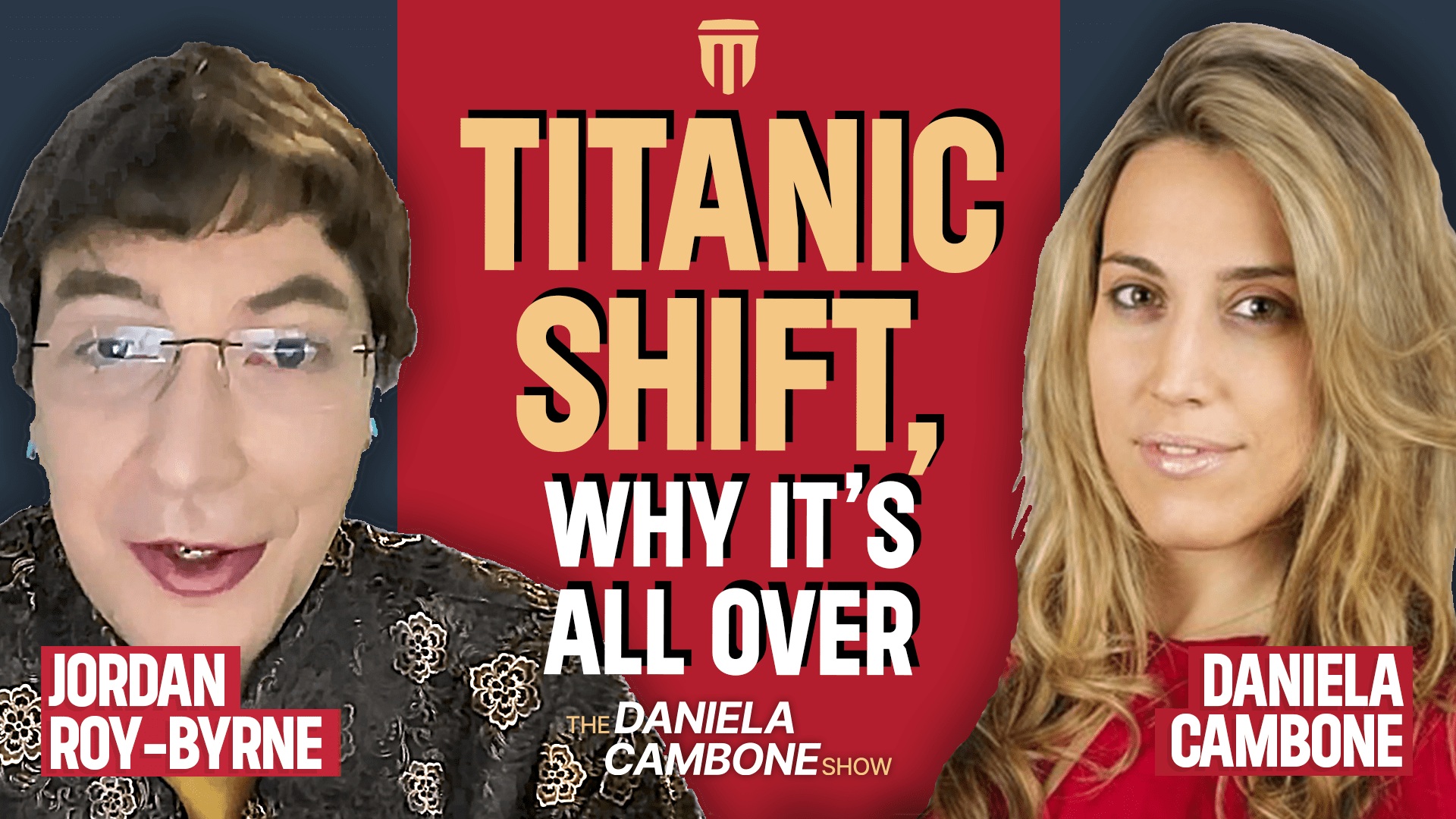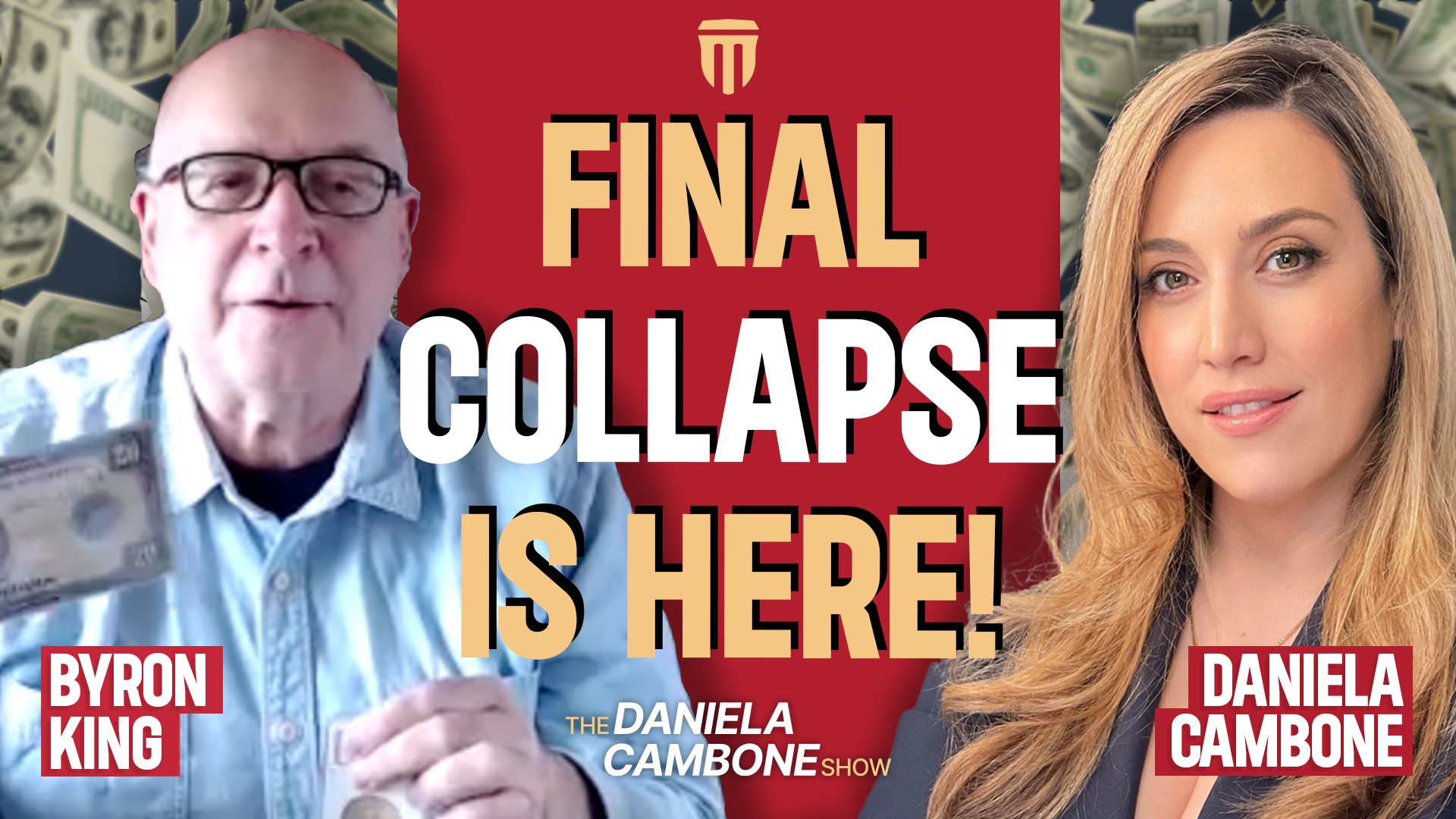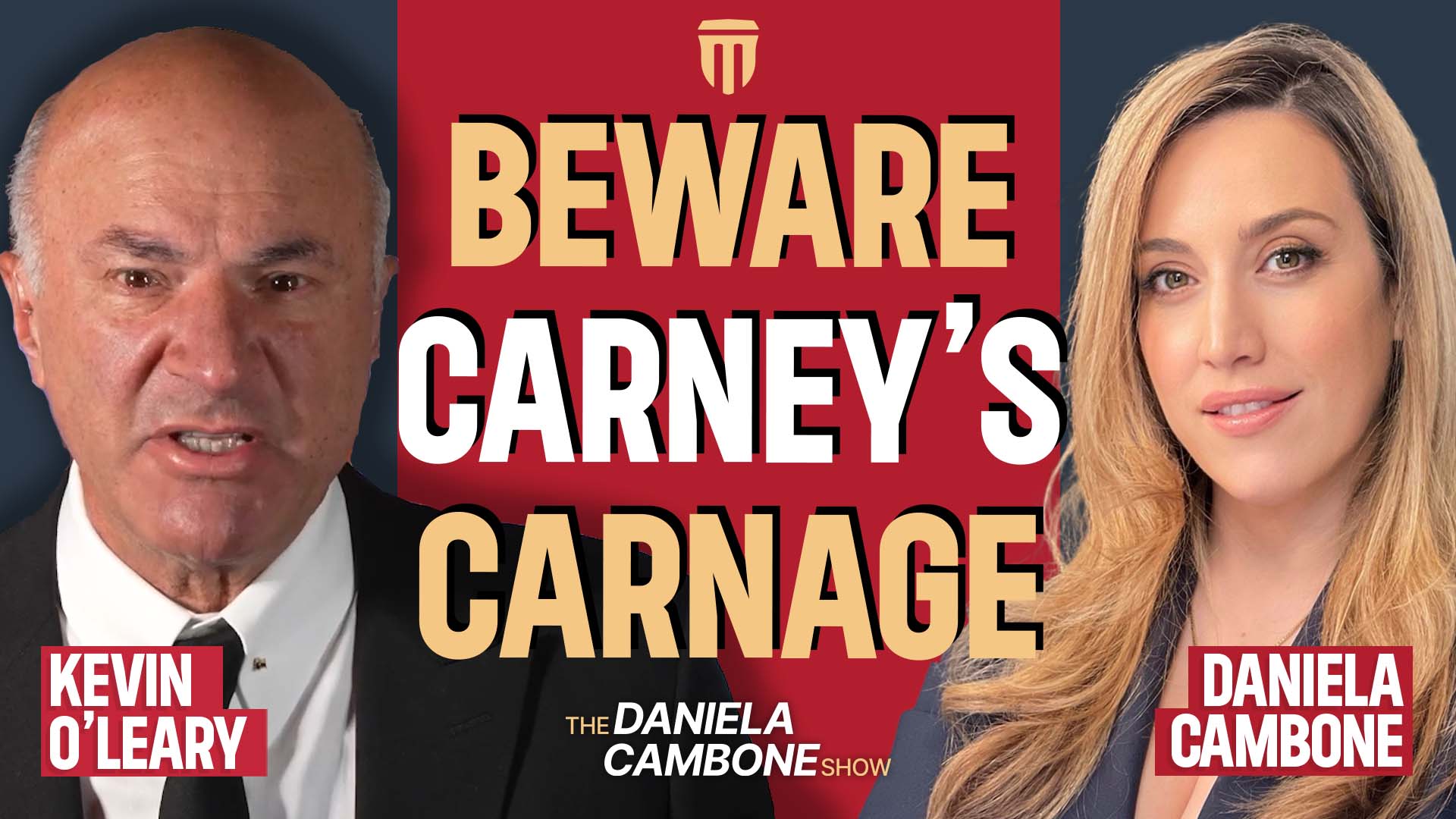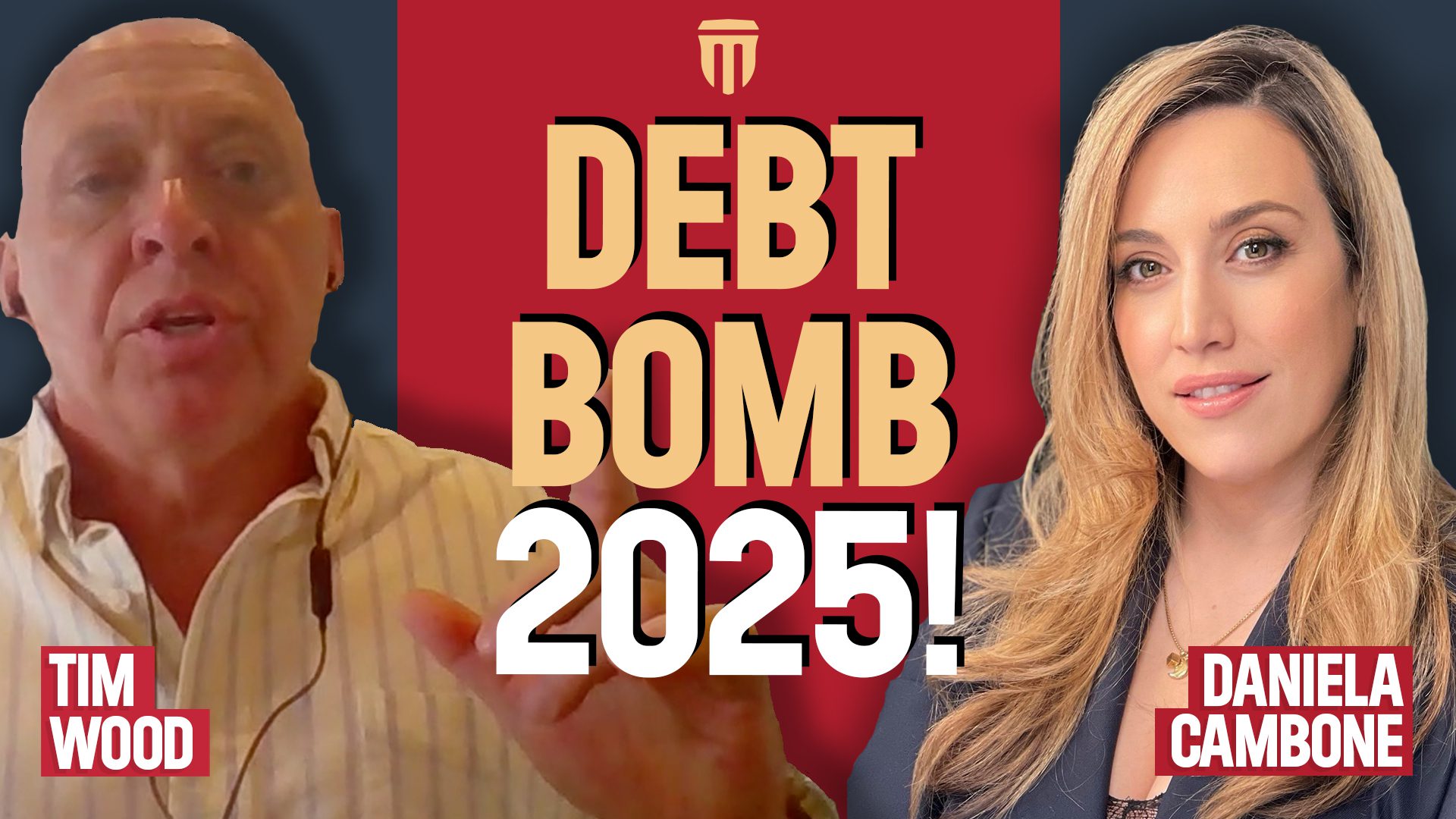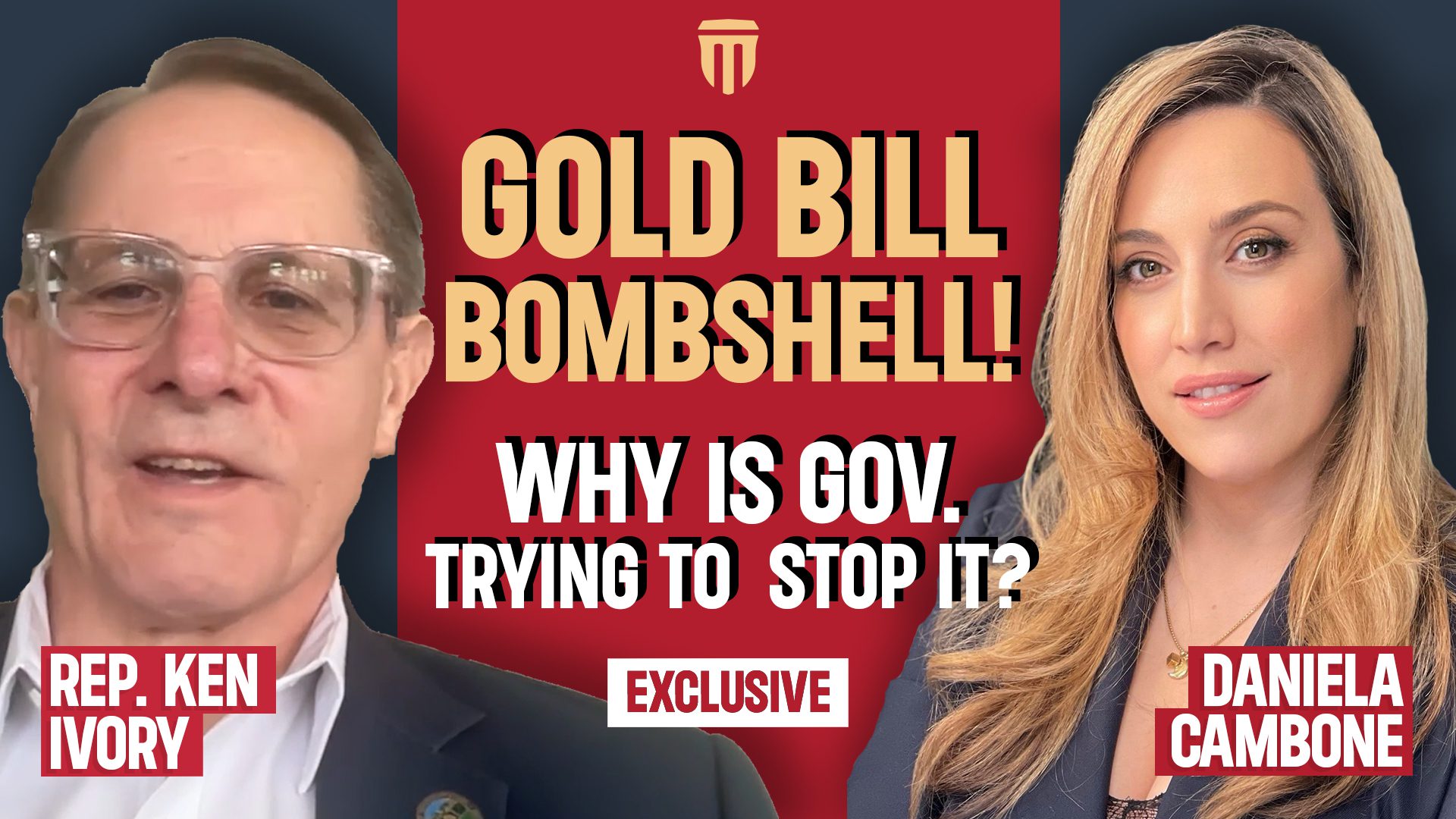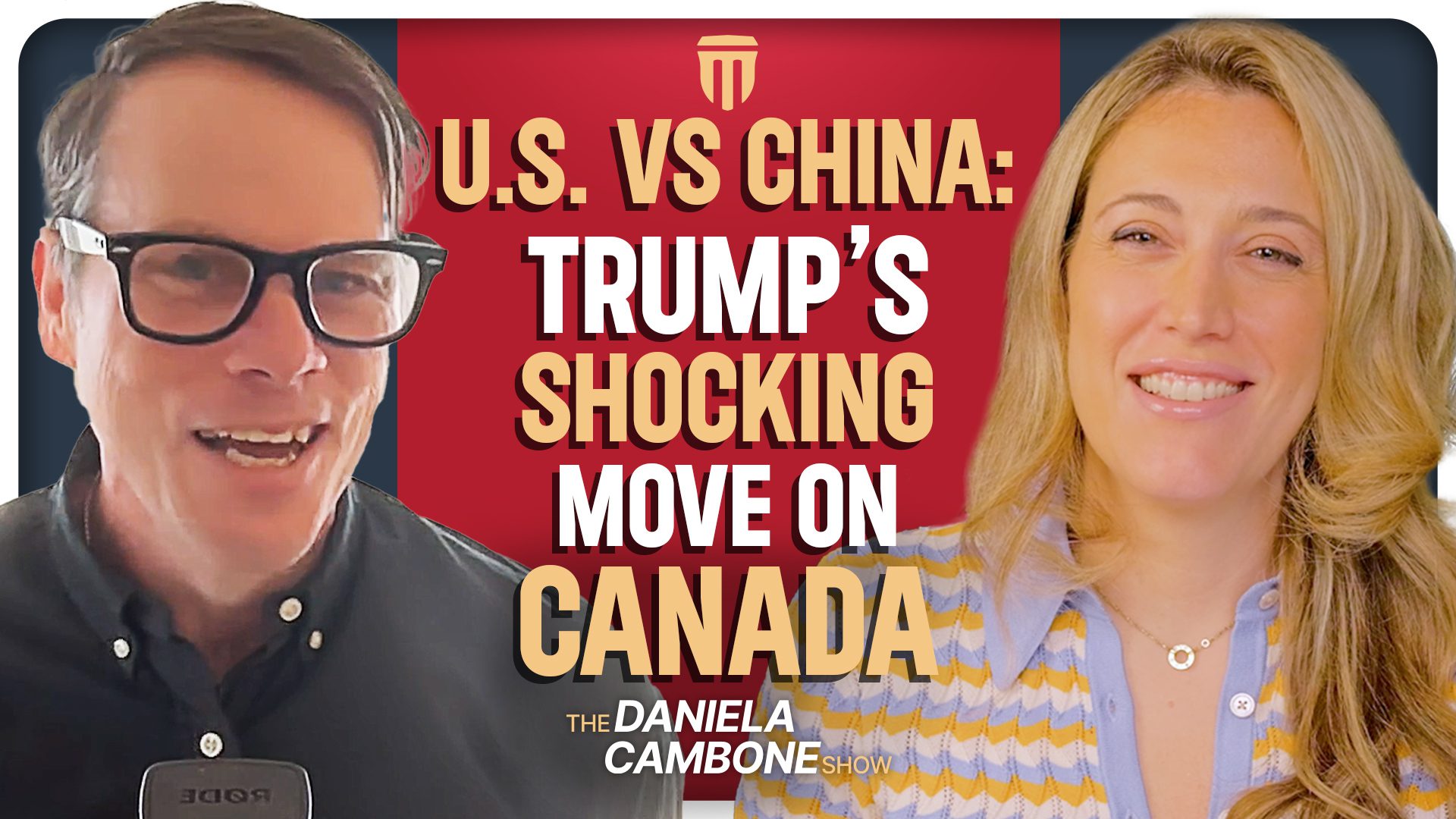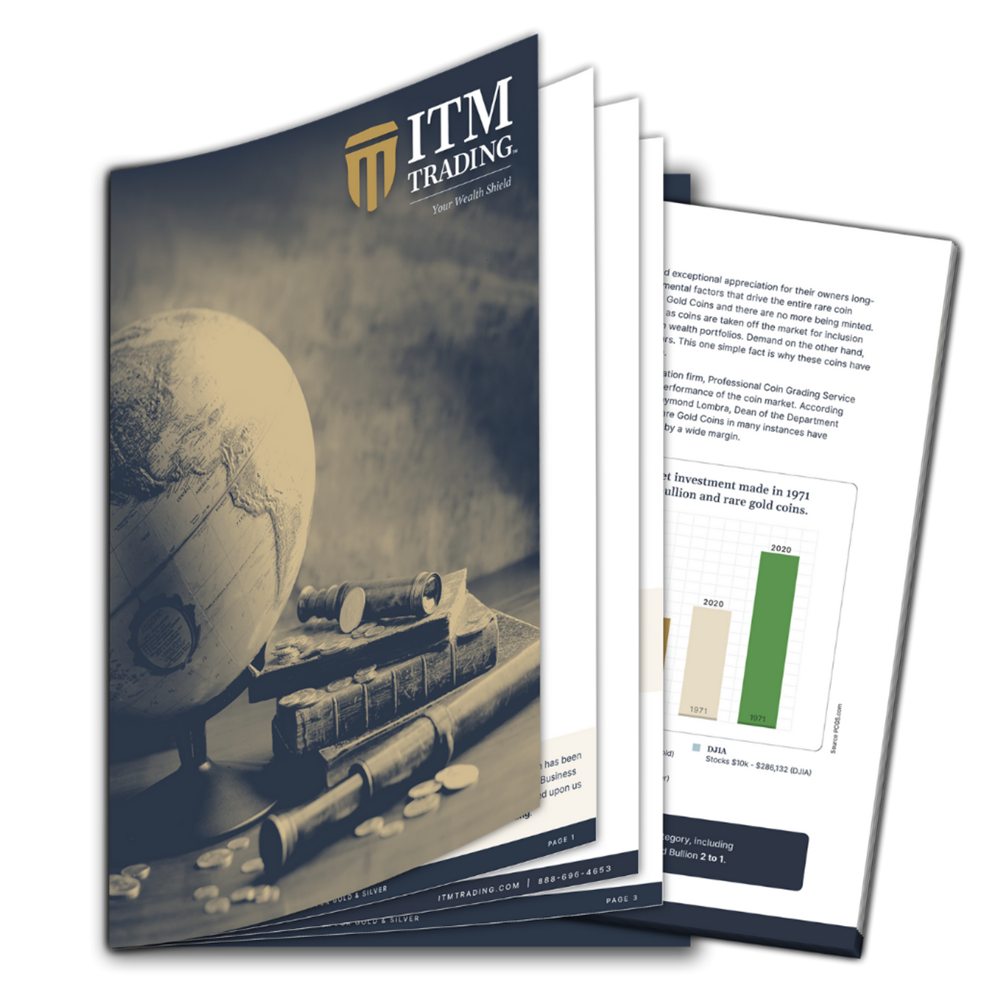Jim Rickards: Put on Your Crash Helmets – New Banking Meltdown Could Snowball into Global Liquidity Crisis
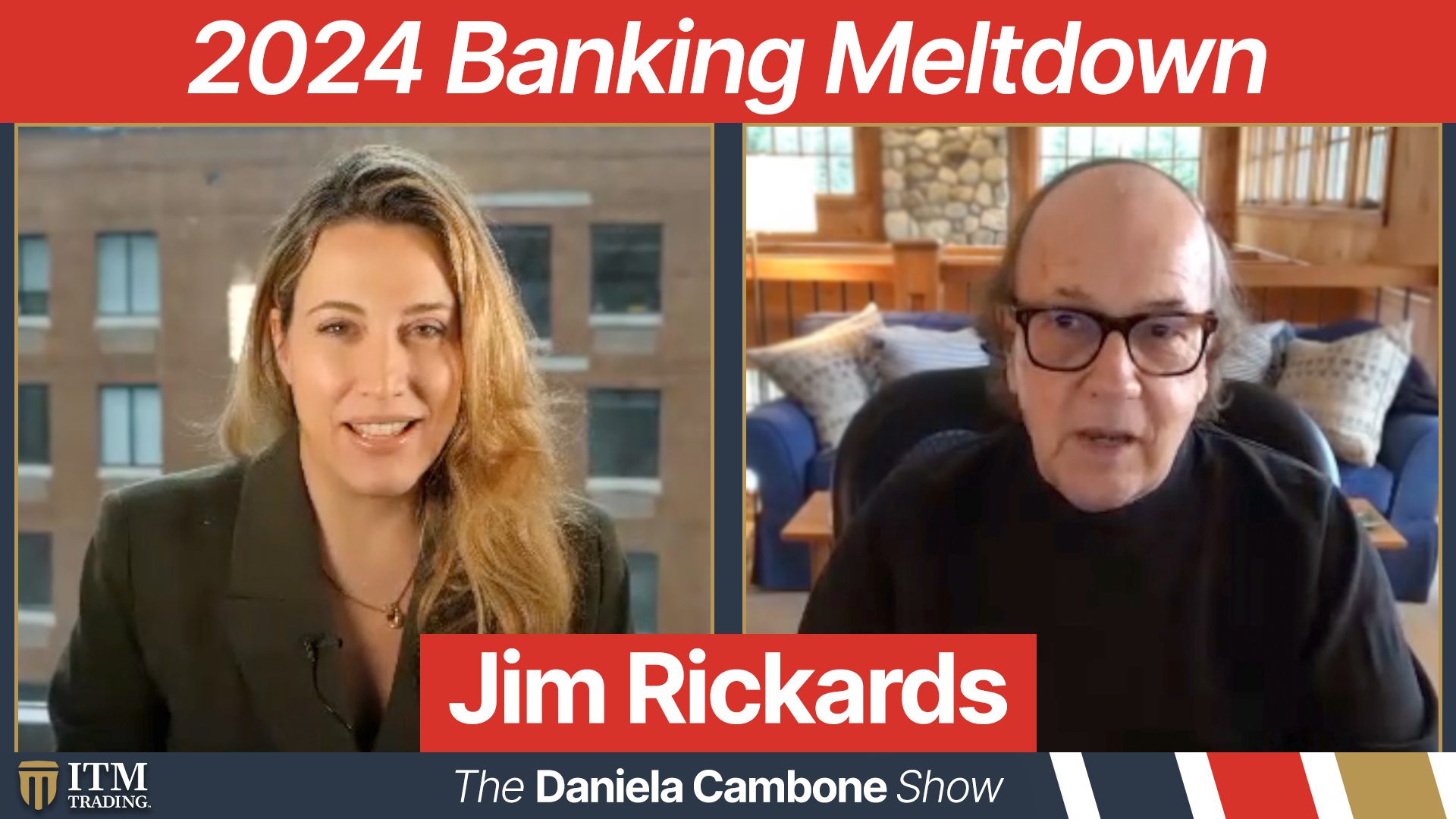
Jim Rickards, the acclaimed author of Currency Wars: The Making of the Next Global Crises, warns that the utilization of the $300 billion Russian assets will “destroy the U.S. Treasury market.” In a conversation with Daniela Cambone, Rickards delves into the intricacies of the correlation between the unemployment rate and inflation, as depicted by the Phillips curve, cautioning that this relationship can be misleading. He emphasizes that “employment is a lagging indicator” because employers strive to avoid layoffs until desperation sets in. According to Rickards, the challenge is that by the time unemployment rises, indicating an impending recession, rate cuts may be too late.
On the waning dominance of the U.S. dollar and the rising influence of BRICS, Rickards suggests that the dollar can handle the “dirty work,” allowing the new BRICS currency to enjoy a “free ride on the dollar.” In conclusion, Rickards anticipates a positive trend for gold in 2024. For more insights from Rickards, watch the video.
CHAPTERS:
00:00 Recession and soft landing
4:00 Economic situation
5:47 Fed and political
10:44 Political election
17:42 U.S. dollar/Russian
24:41 BRICS
31:47 Banking crisis
34:22 Bitcoin
36:57 Gold
TRANSCRIPT FROM VIDEO:
Well, my guest today on the Daniela Cambone Show here on ITM Trading says, put your crash helmets on for 2024 because it’s going to be a wild ride. Please welcome to the program, bestselling author, Jim Rickards. He’s also the editor over at Strategic Intelligence. Jim, Happy New Year. Always good to see you, my friend. Happy New Year, Daniela. Great to be with you also. Yeah. Thank you. Yes, well, no shortage of news headlines. I couldn’t wait to have you on to get your take. First and foremost, I’ve been watching the other interviews you’ve been doing on your Outlook. And I mean, your view for 2024, should I say, is quite grim. You say it’s going to be worse than 2023 and that a recession is still likely and maybe it’s already begun. So I guess my first question to you is with all this talk about soft landing and Janet Yellen coming out saying the Why is your outlook still so bleak? Well, for starters, who has a worse forecasting record than Janet Yellen? Sorry, I don’t put much weight on what she says, but yeah. Points made. The recession indicators, the long-term, and honestly long-term, I mean, the ones that have the best track record of being good predictors as further in advance, have been signaling recession for a long time. So a lot of economists, and I would include myself, have said, you know, there was gonna be a recession 2023. it, according to the data that didn’t happen, maybe we fell into one around November, December. We won’t know for another four or five months. We’ll see what happens. But it doesn’t mean that the warnings were wrong. It doesn’t mean that we won’t have a recession. It just means that it has taken longer to unfold than a lot of people expected. But now those same signs are actually getting worse. And I’m sure you’ve heard, there was some very good analysis from a number of people. Jeff Snyder, Stephanie Pomboy, Sarge, Steve Guilfoyle, New York Stock Exchange, and others about how that unemployment report, the employment report that came out about a week ago was completely misread. I mean, that was, the stock market went up, unemployment, job creation exceeded expectations, unemployment remained constant, that was consistent. with the happy talk, with the Goldilocks narrative, soft landing narrative, et cetera. And so it kind of stocks rallied on that. But if you look behind the numbers, I mean, there are two surveys. One of them showed about 220,000 jobs created. The other one showed 1.5 million full-time jobs lost. And then there were about 700,000 a little more part-time jobs created. So if you net the two, you still lost. 750,000 full-time jobs. And then of course, part-time jobs aren’t nearly as rewarding as full-time jobs. And then they’ll show that hourly wages went up, okay, but there were fewer hours worked. That’s how employers are managing the costs. Like, I’ll pay a little more, but you work 30 hours instead of 40, so you’re making less money. So there was, and then they gave a downward revision to the prior months. And for 12 months in a row, 11 out of the 12 months, they’ve downwardly revised the prior month’s number. So why should we have any confidence in the 220? Because that’s probably going to get downwardly revised next month. And when you’re like 11 out of 12 months, that’s not random. Yeah, there’s a certain amount of noise in the data. Everybody understands that. But that’s something seriously flawed in the model. You don’t get that. It’s like rolling the dice. getting a six, 11 times in a row, it doesn’t happen or is extremely rare. So there’s something wrong with the model. So there’s a lot less there than meets the eye. Right. Well, that’s what’s exactly so frustrating. You’re talking about all the job losses and look at all the companies announcing the job cuts that are still to come. We have corporate America having to refinance their debt, something they haven’t done in 40 years. We have the World Bank, Jim, saying that the global economy is set for its worst half decade of growth in 30 years. So one, you know, get spared at all this? Well, we have so far, but I think our luck has run out, if you want to put it that way. Germany’s in recession. They just are. That data is clear and it’s getting worse. Japan is kind of right on the edge, might be in recession. UK, same thing, right on the edge. The US and China, saying China’s in recession is probably a stretch, but- If in China, if the growth goes from 10% to 7% to 5% to 4%, which it has over the last 10 years, that lost output is equivalent to a recession. China’s trying to prop up their economy. So their economy is doing very poorly. When I see things like world trade contracting, it’s not, with the trade figures, everyone focuses on surplus or deficit. So you have a trade surplus, your GDP goes up, you have a trade deficit, your GDP goes down. Did the deficit shrink? That makes GDP a little higher, et cetera. Forget about that. I mean, okay, it’s important data, but if you look at the top line, the exports and the imports, they’re both shrinking. So whether the deficit gets a little bigger, a little smaller is less compelling, less important than the fact that both numbers are going down. World trade is shrinking. And that almost never happens except in recessions or during the Great Depression. I want to get one more point on the Fed from you here. Obviously, we’re speaking ahead of the Fed January meeting and will they hold rate steady or not. But the bigger question I have for you, Jim, is it’s an election year, right? So will Jerome Powell feel that pressure? I’m going to bring up an opinion piece I read in the New York Times. where the journalist says, what I don’t know is whether the Fed is ready for the political firestorm it’s about to face and whether it will stand up to the pressure to keep rates too high for too long. Because it’s a safe prediction that Donald Trump and his supporters will scream that the coming rate cuts are part of a deep state conspiracy to reelect President Biden. Will Powell feel the political pressure? Well, the Fed, of course, always says we’re not political. We do what we’re supposed to do. We follow the models. We’re not political. That’s completely untrue. They’re highly political. They watch the headlines very closely. So they’re aware of it. And you have to sort of put Jay Powell in context. He is a Republican, but he’s a Bush Republican. He’s there’s no reason to think he likes Donald Trump or is a Trump supporter, etc. He’s not a Democrat, but he’s the kind of Republican who doesn’t really like Donald Trump. So my expectation is, no, the Fed for now is not going to cut interest rates. They’re done raising. That’s pretty clear. You’d have to have some kind of inflation shock before they raise rates. That is unlikely to happen. Prices are going down. Well, sorry, the rate of inflation is going down. Prices are still going up. That’s a big point of confusion. So prices are going up. but the rate of increases dropped from 9% to 3% in the past 16 months. So that’s progress. 3% is still well above the Fed’s target of 2%. But they think what they call the terminal rate. The terminal rate is the rate where it’s high enough to bring inflation down without having to raise rates more. In other words, it’s high enough to act as a break, just give it time and inflation will come down on its own without further rate hikes. The Fed believes they’re in that position, they won’t be raising rates. So the question is, when will they cut rates? The answer is when it’s too late. I’m meaning the Fed are usually the last to know. And the best example I can give you, Danielle, is they pay enormous attention to what we just talked about, the unemployment rate. 3.7%, that’s one of the lowest unemployment rates since the 1960s. I mean, it is extremely low. But they believe in this Phillips curve. And the Phillips curve is an inverse relationship between inflation and unemployment. So the view is if unemployment is low, inflation is gonna go higher. If unemployment goes up, inflation goes down. So they’re saying unemployment extremely low and saying, well, that’s a little bit of a danger in terms of inflation, so we can’t cut rates. But in fact, there are a lot of problems with that. First of all, there’s no evidence for the Phillips curve. I mean, I can give you… do a quad chart, I can show you high unemployment, high inflation in the late 1970s. I can show you low unemployment, low inflation, you know, in the mid 2010s and so forth. So you can find every low unemployment and low inflation during the Great Depression. So there is no Phillips curve or you construct it. The Phillips curve last time I looked was a flat line, not much of a curve. So first of all, the Phillips curve is garbage. Secondly, Employment is a lagging indicator. I’m not saying it’s not an important number, but employers do everything possible to avoid laying people off. When revenues are drying up and margins are going down and profits are going down, they’ll turn out their life. So renegotiate the lease, they’ll cut the laundry bill, they’ll bargain harder with suppliers, they’ll do everything they can, except fire people because People were hard to hire. You get the talent, it’s hard to find. You train it the last thing you wanna do is fire them. So they will fire them. Unemployment will go up when they get desperate enough. But by then the recession has already started. In other words, it’s a lagging indicator that tells you nothing. So my point being, J-PAL is looking at lagging indicators. If unemployment starts to go up, which I expect it will, he will cut rates, but we will already be in the recession. So he’ll have political insurance. because they’ll say, well, yeah, we’re cutting rates, but hey, we’re in a recession. We have to. It’ll help him avoid the charge that he’s doing it to help Biden. I mean, it’s the charge will be made anyway. They’ll be in the political crossfire, but the economy will be so bad at that point. No one’s going to blame J-PAL. One more point on the election with so many saying this will be the most important election of our lifetime. What do you make of that statement? Well, we both know that. people say that almost every election. You could have said it about 2020 and 2016, et cetera. So it’s a little bit of a cliche, but this one, this time it might be true. And I say that because, not because of a Biden, Trump horse race in a close election, that may or may not play out. We’ll find out. But there’s so many things happening right now. I mean, why are we talking about the November 2024 election and here we are in early… early 2024. The answer is there are things happening right now. Trump’s on trial in four different jurisdictions facing 90 plus criminal charges. There’s a chance that he’ll get convicted of something. I think actually that’s a very high likelihood. Some of them will be dismissed. Some of them will win, but he’ll get convicted of something. He might actually be in man in the orange jumpsuit. But there’s no, and this is something a lot of people don’t understand, there is no legal or constitutional prohibition on electing a convicted felon to the presidency. So Trump could get convicted in this Fulton County case. Although, as you know, that case is blowing up in the prosecutor’s face as Fannie Willis has got her own scandal now. She might be, the case might actually be dismissed. We’ll see. What’s your take on that? Jim and not to go too off tangent there, but this whole movement of just trying to stop Trump at all costs. I mean, even hear the rumblings from the Democrats now that they don’t want Biden even debating Trump anywhere near him. Well, right. There are two different things. So what you’re talking about, there’s a name for it, it’s called lawfare. Basically taking the law, I’m a lawyer, you know, I practiced for decades, taking the law. and weaponizing it and conducting warfare with the law. So that’s what lawfare is. And basically going outside the boundaries of precedent, tradition, interpretation, et cetera, and using it as a weapon. Well, there’s no doubt that that’s what they’ve done against Trump. I take this Bronx County business case, which is actually a civil case, where he’s been accused of overstating the asset values and properties on a loan application of Deutsche Bank. Well, first of all, Deutsche Bank is a pretty sophisticated bank. I assume they do their own diligence. They have their own appraisers. They made the loan. They got paid back with interest. They made a profit. Nobody lost any money. Why are we, show me a real estate developer in New York. Show me one who doesn’t fade values depending on the context. I mean, I was, uh, I was tax counsel at Citibank for 10 years. It was the world’s largest bank at the time. We had five sets of books. Completely legitimate, by the way, just to be clear. we had generally accepted accounting principles, international accounting principles, tax books, cash books and management profit reports, depending on who wanted to see what, which way. So that’s, you know, and they accused them of, they overstating the value of Moro Lago to secure a loan, you know, his place in Palm Beach. And they said, you overstated it because we have the appraised value for property tax purposes. which was I think 15 million. And everyone knows that property tax appraisals tend to be low relative to market valuation. And they got some independent brokers and said, are you kidding? That place is worth 150 million or more. But the judge who was completely corrupt in my view, said, no, it was 15. You said you used a higher number on your loan application. But here’s what they’re going for. The judge on day one, on the first day of the trial, he said Trump’s guilty. He said, basically gave what’s called a motion for summary judgment. The entire trial we’ve heard about is on damages. It’s not whether he lied or not, according to the judge and the prosecutor, it’s the damages. So first of all, he never really got a trial on the substance of what we’re talking about, but their damage theory, the fines will be, so he’s kind of already guilty. The fines, they’re talking about stripping his business license. turning his properties over to a receiver, like a trustee basically, the receiver would then have the power to do what he or she wants with the properties, including sell them. And you say, well, wouldn’t Donald Trump get the proceeds? He’s like, yeah, but they want to put a $300 million fine on Trump. So the first $300 million of profits would go back to the state of New York in the form of fines. This will destroy his business empire. He spent his life building. I mean, properties will be gone, the money will be gone, his business license will be suspended, he won’t be able to do business in New York. This isn’t like a $10 million fine for a little typo in a loan application. They’re destroying his business. But there isn’t a property developer in New York who hasn’t done the same thing, but they leave them alone. So this is an abuse of prosecutorial discretion. It’s just one case and we could go through Georgia more a lot. the classified documents case, the January 6th case, the Fulton County’s, the Rico case, and the, don’t forget about our friend, Sturmey Daniels, with the hush money. I mean, I was a lawyer for 40 years. We had, every firm I worked for, and it’s true of every firm in business, you have your share of complaints of various kinds. You generally tend to, you have a disgruntled employee, or there’s whatever, you investigate. they get their lawyer, you sit down, you negotiate it, you give them a settlement check, nobody admits any wrongdoing, and you sign a non-disclosure agreement and both sides go their way. That’s how you settle those things. They’re messy to litigate and you don’t want to do that. Is that hush money? I mean, you just settle a case and you give somebody some money and you sign a non-disclosure agreement. Is everyone suddenly guilty of a criminal… which is what Alvin Bragg said. And he is kind of, let’s face it, he’s a lightweight. So they are just, you know, and then we haven’t even talked about the 14th Amendment, Section 3. And then, but your point Danielle, and you’re right, there is no end to it. This is, and by the way, quick footnote, every time they bring a new case, a new charge, make things worse, his poll ratings go up, his rankings go up. Well, exactly. That’s just a bigger picture, isn’t it, Jim? It seems like they want, and they, we can talk about who the day is, but wanna stop them. We know who they are. Wanna stop them no matter what. But you mentioned weaponizing, which brings me to my next point. I wanna talk about the US dollar because you make a very strong case when you say this is the reddest of the reddest lines for you. And I know it got press attention, but I don’t think people spoke about it enough. And it’s Mike Johnson’s, you know, floating around the idea that we need to seize Russian treasuries assets to fund Ukraine now. Talk to me about why this is such a dangerous idea. Sure, let’s go back just to the years before the war in Ukraine sort of started, the end of February, 2022. Well, for, I don’t know, 30, 40 years since the end of the Cold War or longer, The Russian central bank had held a portion of their reserves in US treasury securities, dollar denominated, but US treasury securities in particular of different maturities, bills, notes, probably some bonds, mostly shorter term bills and notes. To their credit, Elvira Nabialina, who’s the head of the central bank of Russia, in my view, she’s the only central banker in the world who knows what she’s doing. Russia’s reserves in physical gold, physical gold held in custody in Russia, in Moscow. So the point being, you can’t freeze gold. I’ve always liked that about gold. It’s not digital, it’s not electronic, you can’t freeze it. You can say what you want. So that part is off limits. And they had some other types of investments, a big chunk of it, about $300 billion, which was about half their reserve position. Their reserves were- about 600 billion, they had 150 billion in gold, was in US treasuries. Now, the last paper, Treasury Security, was issued like in 1979. They’re all digital, they’re all, you know, I call the dollar the original cryptocurrency, but they’re held in custody, mostly in Belgium, but other European banks as well, you know, other custodians, Deutsche Bank, UBS, and some in the United States, but mostly in Europe. Now on day one of the war, within a matter of days, those treasuries were frozen. But let’s define what frozen means. Frozen means you, Russia, you still own them, but you can’t have them, you can’t collect the interest, you can’t sell them, you can’t trade them. They’re yours, but we’re locking them up and the US Treasury and the Fed control the ledger so they can enforce that. They can make sure that those securities cannot be transferred. That’s freezing. Now what they’re talking about, and they’re talking about doing this by February 24th, which happens to be the second anniversary of the start of the war. I don’t know why they have to pick anniversary dates, but that’s what they’re talking about. They’re talking about seizing them. Seizing is different. That’s when you steal them. That’s when you take them and say, hey, Russia, pardon me, these are not just frozen. They’re ours. We’re taking them. They’re not yours anymore. And… selling them at the market and using the $300 billion of proceeds to finance the war in Ukraine. Not only are we taking your money, but we’re using it to finance your adversary in a war. Now, a little background. Biden and the White House want $61 billion of additional money for Ukraine. That has not passed. There’s a lot of opposition in the House. some opposition in the Senate, I would say if it were up to the Senate, it would pass, but the House is saying no. And what Biden did, what the White House did, they bundled 10 billion for Israel, 60 billion for Ukraine, some number, I think another 10 billion or so for, maybe a little more for Taiwan in one bill. And the idea was, even if you don’t like Ukraine, you don’t want to vote against Israel. So it would be a way to get everybody to vote for it. Well, the House said no. And Mike Johnson, speaker of the House said no. And they said, first of all, we want them separated. So the House voted for Israeli aid. That already passed, it split the Senate. But they have not voted on Ukraine. And then they said, well, if you insist on doing that, we want money for the border. And Biden said, okay, I’ll take more money for the border. And by the way, we’ll use it to process more illegal aliens. And they said, no, you can’t use it for that. We want you to shut the border. So this is at an impasse right now. They might shut down the government over this in the coming days. But the point is there’s no money for Ukraine. As of now, there is no money for Ukraine. The European Union. separately has not approved any new money for Ukraine because Hungary is exercising a veto power over that because the EU requires a unanimous vote. So Ukraine’s not getting any new money from anywhere right now and they’re losing the war pretty badly. So the question is, so where do you get the money? Well, maybe they can figure this out, but all of a sudden Johnson and the White House, Mike Johnson, White House say, hey, we got $300 billion sitting right here in the banks. Let’s just take it and- spends it on Ukraine. If you do that, you will destroy the US Treasury market. That is the, I described as the reddest of red lines. Does he realize that? I don’t think so. Maybe he will now. I’ve been talking about it. Others have been talking about it. Maybe somebody will tap on the shoulder and say, Mr. Speaker, do you understand what you’re doing here? But Janet Yellen, who’s sort of- you know, not that bright, kind of does what she’s told. She’s going along with the White House view of this. The Senate is for it, but they’re all warmongers. Even the Republicans in the Senate are rhino warmongers. And of course the Democrats think it’s a good idea. The House is divided. But look, Johnson just got elected speaker. Who is he? He’s a Louisiana Congressman. I haven’t met him, but apparently very bright. I really well respect a constitutional scholar. I think he’s done a lot of things right. So I kind of support him. But why should he be an international monetary expert? Why should he understand what we’re talking about right now? He clearly doesn’t. They just think it’s free money. Hey, here’s three, they don’t understand the implications. What country in the world would wanna own a treasury security, $1 worth, if you think the US will take it, if they don’t like what you’re doing? So if that happens, right? Let’s talk about those implications and bring up. the BRICS here. And I think Bloomberg had a good article, Ping and Peace here. They did a good job summarizing that the BRICS grouping has long been distinguished by consistent failure to live up to potential. The internal contradictions are crippling. Divergent interests between members make it difficult to develop any shared policies. Brazil, Russia, South Africa are commodity exporters. India and China are importers. Brazil, India and South Africa are democracies. Russia and China only pretend to be. And India and China, as everyone knows, don’t exactly see eye to eye on anything. So I would say, yeah, pretty decent summary of the BRICS. Now we know five new nations have just been added. My question is, do you think they’ll finally be taken seriously? Is there weight to the BRICS? There’s a lot of weight to the BRICS. And by the way, as far as that Bloomberg article is concerned, the facts that… The reporter was reciting were correct, but they’re also irrelevant. And here’s why. The BRICS is not a political union. It is an economic union with a focus on trade and currency. Yeah, China and India, they fought over the Himalayas, Saudi Arabia and Iran are both members. They’ve had their differences, et cetera. So to say there are all these political differences among the members and it’s not a perfect… you know, marriage or whatever. Yeah, but that’s not the point. Point is they’re working on a currency union and a trading, a free trade area. And you can have that. India and China can fight over the Himalayas all they want, but if they reduce tariffs and have a common currency, that’s a big deal. And as far as, you know, they’ve been talking about this a long time, they haven’t made much progress. That’s not true. They’ve made a lot of progress. They have the new development bank, which is basically a clone of the World Bank. They have the contingent reserve arrangement, which is basically a clone of the IMF. They spent a lot of the last 10 years duplicating the Bretton Woods institutions under their own control and for their own purposes. So they’ve sort of cloned Bretton Woods in a way they control the building their own communications networks. And here’s the big thing, they had the August leaders summit where Prime Minister Modi and President Xi Jinping and, you know, Syria, Ramaphosa and the other leaders were there. Putin had to come in by video because there’s a warrant out for his arrest from the International Criminal Court. But they, I was one of the ones writing and talking about how it would be highly significant in terms of advancing the currency, the new BRICS currency is what we’re talking about, gold linked, by the way. Then it sort of came away and people said, Hey Jim, nothing happened. Like you were talking about this and what was the big deal? Well, there was a very big deal which was adding the new members because there’s no point, what’s the benefit of a bilateral trading currency? If it’s India and China and they agree on it, it’s easy to invent a currency. Just pick a name and print some and there you go. So, but if India and China had a common currency, and India shipped goods to China and got paid in that currency. What can India do with the currency? All you can do is buy stuff from China. You might need some stuff from China, but you want to go shopping everywhere else in the world. Same thing with Russia and India. But so, so how do you make a currency union work? Well, the answer is you expand the membership so that when you receive the currency for your exports, you can spend it somewhere else. That’s what, that’s what the Euro is. The Euro is 16 members. Sorry, 19 members today. So the key to a successful currency, and you don’t need a common fiscal policy, but does anyone think Germany and Greece have the same fiscal policies? Well, I feel like to that point, that’s the pushback that I always get is, well, you’re never gonna get these countries to agree, but don’t you think that their greater cause is that unification of… we’re gonna beat the US dollar. We’re gonna take down the US dollar. Well, yes and no. Let me explain what I mean by that. Again, when you say unification, again, do Greece and Germany have much in common? Not really, I mean, food’s better in Greece and the climate’s better. You don’t need a genuine political union, but you do need agreement on exactly what you mentioned Danielle, which is we’re gonna have a common currency. We’ll all be able to trade it among ourselves. The key is expanding the membership so that the currency is worth something because you can spend it in more than one place. Now once you get that far and you agree on a central bank, and I said they already set up the National Development Bank in Shanghai, so they’ve got a bank kind of waiting to go. And then, but they don’t, here’s the way I put it. They don’t want to destroy the dollar. They don’t have to. They actually kind of want the dollar around. to do their dirty work. What they really wanna do is free ride on the dollar. So let me be clear about what I mean. So a unit of bricks currency, quote one brick, I don’t know what they’re gonna call it, but it’s called a brick. One brick will equal a weight of gold, not a dollar amount. They’re not using dollars. It’ll be a weight of gold, an ounce a kilo, I don’t know, but it doesn’t matter, it’s just math, a weight of gold. Now the weight of gold. will have a dollar value based on the dollar gold market, because as you know, the gold market is overwhelmingly dollar based, but which means that through a transit of law, A equals B equals C, so A equals C, the bricks will have a dollar value, but it won’t be linked to the dollar, it’ll be linked to gold, and then the gold will have a dollar value, and you’ll be able to, again, come up with a dollar value for a brick through a transit of law. But meanwhile, the dollar’s the one that’s gotta go out there and hold up its hand in the gold market. And so if you’re the bricks and you define your currency by weight of gold, what do you want to happen to the dollar price of gold? You want it to go up because, because then your currency goes. Right. So there was the dollars got to do the dirty work in the gold market and the bricks can just free ride. Speaking about banks, wanna get your thoughts quickly here? Well, not quickly, because I know it’s not a small talking point, but the banking crisis. I love this quote of yours, because I absolutely believe this is the case. You say investors are relaxed because they believe the banking crisis is over. That’s a huge mistake. History shows that major financial crises unfold in stages and have a quiet period between the initial stage and the critical stage. Tell us why you believe it will come back to haunt us in 2024. Well, first of all, that’s what history shows. And none of these things are completely deterministic, but financial history can be a pretty good guide. And you go back to 1998, well, 1997, 1998, what happened, just very briefly, that crisis started, it came to a head in September, 1998, with long-term capital management and the Russian default. But it started in Thailand in June 1997 when they closed the capital account and devalued the Thai baht. And that started a panic throughout Asia because everyone assumed that all these pegs to the dollar were safe and you could put dollars into Thailand and Indonesia and so forth and not have to worry about the exchange rate. And all of a sudden there was a run on the bank. Everyone, I talked to Dr. Mahathir, who’s the Prime Minister of Malaysia about this. He was the only guy who kind of got it right. But once Thai did that, then there was a sequential collapse, background, if you will, in Indonesia, South Korea, Malaysia, et cetera, throughout Southeast Asia. But then it calmed down in the winter by December, but it was very serious in the following, people were getting killed in the streets in South Korea. But by December 97, January 98, February 98, it had died down, looked like it was over. And I was at Long-Term Capital Management. We didn’t, we weren’t worried about it. We were looking at expanding our business in Asia. You know, we actually paid a $3 billion all cash dividend in December of 97th. I mean, that’s how confident we were. We gave $3 billion back to our investors. But then by April, it started to hot up again. And then the Russian default was in August and the LTCM meltdown was in September. So that had two stages, but a quiet period in between. Same thing in 2007, 2008, the global financial crisis. That really took off in the spring of 07 with the mortgage losses. And then, we all remember Jim Cramer’s, they know nothing. They know nothing! But then it died down in the winter. And then, but it came back with Bear Stearns. So these things do have two stages. We’re in a quiet stage right now, but I expect the banking crisis will. You mentioned Jim Cramer and I want to kind of wrap on this lighter note. I mean, you saw him do a 180 on Bitcoin saying, and now it’s here to stay, even though this week he said it was topping out, but basically he’s embraced Bitcoin. So my question is in 2024, has Jim Rickards changed his stance on Bitcoin? The answer is no. Why am I not surprised? Well, look, when you say it’s here to stay, gambling is here to stay. You know, they gamble during the French revolution and they gambled in 19th century London and you can go to Las Vegas, Atlantic City today. So gambling is here to stay. It’s a, it’s not particularly productive activity. It costs people more than they make. But it’s a form of entertainment. So I think of Bitcoin as a form of entertainment. Why? Well, put it this way. You go into a casino. I think of Bitcoin as a casino chip. Okay. So you go into a casino. You put a thousand dollars down the roulette table. Coupier gives you a thousand dollars worth of chips. You gamble. You could make money or lose money. When you’re done, you pick up your chips, you go to the cashier and you get dollars and you go outside. So in other words, in the world of crypto, you can buy and sell Bitcoin all day long and you can calculate dollar profits. But if you want your profits, you have to sell it and get your dollars out of that world and go back out on the street. But the Bitcoin itself has no value outside the casino. Like if I walk out of the casino with the chips in my pocket and try to buy a cup of coffee with the chips, you can’t do it. I mean, maybe somebody will help you out, but basically you gotta convert back to dollars. So Bitcoin are chips in the casino. You can gamble, have fun, kind of entertainment, make money, lose money. Most people lose money actually. Some people have made a lot, it’s true. So what do you say when people say, well, you have to convert gold back to dollars? No, you don’t just keep the gold. I don’t, I don’t convert gold to dollars. I like the, you have the gold for the day when the dollar is not worth anything. That’s why you have the gold and everyone’s going to be saying, get me some gold. So that’s number one. Number two, tell me the use case for Bitcoin. I mean, there is no use case as a, as a form of speculation, as a form of gambling. Yeah, it’s the chip in the casino. I’ll grant that. I understood by the people. People tell me, Oh, Jim, you’re technophobic. You don’t understand. I read, I read Nakamoto’s paper in 2009 when it came out. Okay. I’ve been in big, I’ve been in gold Bitcoin debate since 2010. I never lost by the way. So I get it. I get the technology. I get the math. But I also understand monetary economics and there is no use case for Bitcoin except for entertainment. Is 2020 for the year for gold? I know for you it’s all yours, but people coming out with the fact that this is the year. Well, the answer is yes. And I’ll tell you why, because the there are a number of factors that drive the price of gold and you know them. But just for the benefit of the viewers, you know, you start with supply and demand. Supply has been constant. Global mining output has not gone hasn’t gone up or down very much for about six years. It’s pretty flat. not because of retail, Americans don’t understand it, but central banks do. And Russia, China, New Mexico, Kazakhstan, Vietnam, long list of central banks have been acquiring gold. By the way, they’re acquiring more gold now because this whole treasury bill confiscation we talked about earlier. So when demand is up and supply is flat, that tends to drive prices higher. So that’s a good start. But the biggest factor, driving gold prices recently is declining interest rates. So if you said, Jim, give me your forecast for gold, I would say, well, let’s start with the forecast for interest rates. And the forecast for interest rates is they’re gonna drop a lot, very steeply. They already have, the yield of maturity on the 10-year note dropped from 5% to 4% in like the blink of an eye. It was like a couple of weeks in November and December. Now it’s backed up a little bit, you know, like, yeah, nothing goes in a straight line. We know that. So the past couple of days, well, the week or so, uh, the yield is kind of backed up from 3.85 to, you know, four, but that’s temporary. It’s going to go to two or lower because now we’re back to the recession. You get the kind of recession and disinflation and even deflation that I see that we’re talking about, then interest rates are going to come down a lot. So I would look for the yield to have been shorting on the tenure note to drop from four to three to the two handle. And that’s gonna send the price of gold a lot higher. Jim Rickards, we covered a lot of ground today. We covered a lot and I thoroughly enjoyed it. And I thank you for all the work you continue to do, especially through strategic intelligence where you’re reaching, you have fans all over the world, all over the world. It’s very nice. I’ll travel like in a hotel or airport, a lot of someone comes up and shakes your head, but it’s always nice. I always take time and love to talk to people. I know you know this story, but I think it’s the first time I’m going to share it with the public. When I was moving from Montreal to New York City and I had to sell my car, I just posted it, you know, on whatever, Lease Busters at the time. And I had one guy write in and say, wait, are you the Daniela Campona that interviews Jim Rickards? Because I love Jim. that I said, yeah, that’s me. He’s like, I’ll take the car. No test drive, no inspection. He’s like, I trust you because you interviewed Jim Rickards. That’s that’s a great story. And you know who I’m talking about. But so thank you, Jim. Thank you, Daniel. And I wish you a wonderful 2024 despite your dire warning. You’re still a positive person. Yep. Well, it’s good to be prepared. By the way, you can make money in downtown, so you just have to see it coming. Thank you, Jim. And thank you all for watching. We’ll have more great content headed your way on the Daniela Cambone Show, and you can stay up to date on everything at danielacambone.com by signing up there. And if you want to discuss any of these topics further or have a strategy for 2024, you can set up account with one of my colleagues over at ITM Trading, they’re happy to discuss any of this with you. You can find that in the description below. That’s it for me. Thank you all for watching. We’ll see you soon.
SOURCES:
https://twitter.com/JamesGRickards
https://www.wsj.com/world/china/chinas-growth-slows-to-three-decade-low-excluding-pandemic-93d61487
https://www.economicshelp.org/wp-content/uploads/2013/02/phillips-curve.png
https://www.reed.edu/economics/parker/f10/201/cases/disinflation.html
https://medium.com/@abcarom/why-is-us-inflation-low-as-unemployment-continues-to-fall-3e1b861130e7
https://www.wto.org/english/res_e/statis_e/merch_trade_stat_e.htm
https://www.youtube.com/watch?v=px9nsEOyhF8
https://www.youtube.com/watch?v=GRwn6R0e2M8
https://www.nytimes.com/2022/05/09/business/elvira-nabiullina-russia-central-bank.html
https://www.youtube.com/watch?v=N3gQPxL0y34
https://finance.yahoo.com/news/key-highlight-brics-contingent-arrangement-130015426.html
https://www.bbc.com/news/world-asia-44028023
https://www.youtube.com/watch?v=EklCI7D7Rns
https://www.thebalancemoney.com/bearn-stearns-collapse-and-bailout-3305613
https://www.cnbc.com/quotes/US10Y
https://fred.stlouisfed.org/series/CPIAUCSL#
https://www.youtube.com/watch?v=g0YATTDFfrU
https://www.youtube.com/watch?v=P4_uoKIAVQ0&list=RDNSP4_uoKIAVQ0&start_radio=1
